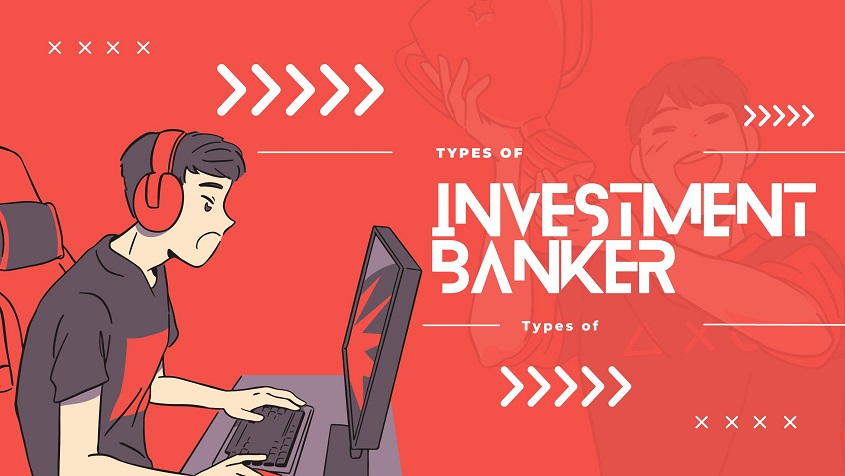Investment Banker – Types, Salary, Work and More in 2024
Hello friends, today we will share detailed information about Investment Banker.
Introduction of Investment Banker
An investment banker is a professional who helps companies and governments raise capital by underwriting and selling securities.
They also advise corporations, institutions, and governments on financial matters such as mergers and acquisitions, initial public offerings (IPOs), and other complex financial transactions.
What is Investment Banker?
Investment bankers play a crucial role in the financial industry. They help companies and governments raise capital by underwriting and selling securities such as stocks, bonds, and other financial instruments.
Investment bankers advise their clients on strategic financial decisions, such as mergers and acquisitions, leveraged buyouts, and corporate restructurings.
The role of an investment banker can vary depending on the specific area they work in, but some of the most common responsibilities include the following:
Capital Raising: Investment bankers help companies and governments raise capital by underwriting and selling securities such as stocks, bonds, and other financial instruments.
Mergers and Acquisitions: Investment bankers advise companies on mergers and acquisitions, which can include everything from target identification and valuation to negotiating the terms of the deal.
Strategic Financial Advice: Investment bankers offer strategic financial advice to their clients on various financial matters, including financing strategies, risk management, and capital structure optimization.
Due diligence: Investment bankers conduct extensive due diligence on potential clients, analyzing financial statements, evaluating market conditions, and assessing risk factors.
Market research: Investment bankers conduct market research to identify potential clients, assess market trends, and evaluate the competition.
Relationship building: Investment bankers build and maintain relationships with clients, regulators, and other stakeholders to ensure they understand the industry and the market well.
To become an investment banker, one typically needs a bachelor’s degree in finance, accounting, economics, or a related field.
Many investment bankers also have advanced degrees in business or finance, such as a Master of Business Administration (MBA) or a Master of Finance (MFin).
Entry-level positions in investment banking typically require strong analytical skills, attention to detail, and the ability to work well under pressure.
Investment bankers often work long hours, including weekends and holidays, and must be able to handle high levels of stress.
However, the work can be rewarding, with high salaries and opportunities for advancement. Successful investment bankers can earn substantial bonuses based on their performance.
Overall, investment banking is a complex and challenging field that requires a combination of financial expertise, analytical skills, and strong communication and relationship-building abilities.

Types of Investment Bankers
There are several types of investment bankers, each specializing in a different area of finance. Here are some of the most common types:
Corporate Finance Investment Bankers: These investment bankers work with corporations to raise capital by underwriting and selling securities such as stocks, bonds, and other financial instruments. They advise corporations on mergers and acquisitions, restructuring, and other strategic financial decisions.
Sales and Trading Investment Bankers: These investment bankers work with institutional clients such as hedge funds, mutual funds, and pension funds to help them buy and sell securities. They also provide market research and analysis to help clients make informed investment decisions.
Mergers and Acquisitions (M&A) Investment Bankers: These investment bankers advise companies on mergers and acquisitions. They help companies identify potential targets, evaluate a deal’s financial and strategic implications, and negotiate the terms of the transaction.
Equity Capital Markets (ECM) Investment Bankers: These investment bankers specialize in helping companies raise equity capital through initial public offerings (IPOs), secondary offerings, and other equity-related transactions.
Debt Capital Markets (DCM) Investment Bankers: These investment bankers specialize in helping companies raise debt capital through bond issuances, syndicated loans, and other debt-related transactions.
Private Equity Investment Bankers: These investment bankers work with private equity firms to help them identify and acquire companies and help portfolio companies with financial and strategic planning.
Structured Finance Investment Bankers: These investment bankers work on complex financial transactions that involve the creation of customized securities or financial instruments.
Each type of investment banker requires specialized knowledge and skills. While some investment bankers may work across multiple areas, many specialize in a particular area of finance.
How to become an Investment Banker?
Becoming an investment banker typically requires education, experience, and networking. Here are some general steps to follow if you want to become an investment banker:
Get a Bachelor’s Degree: Most investment banks prefer candidates with a bachelor’s degree in finance, economics, accounting, or a related field. Also, consider pursuing a degree in business administration or an MBA to give yourself a competitive edge.
Gain Relevant Experience: To become an investment banker, you’ll need to gain relevant work experience in finance. Consider internships or entry-level positions at investment banks, financial institutions, or related companies to gain experience and learn more about the industry.
Build Your Network: Networking is crucial in the finance industry, and you should begin building your network as early as possible. Attend industry events, join professional organizations, and connect with alumni or professionals in the industry to expand your network.
Consider Additional Certifications: While not required, additional certifications can demonstrate your knowledge and commitment to the industry. To enhance your qualifications, consider obtaining certifications such as Chartered Financial Analyst (CFA) or Financial Risk Manager (FRM).
Apply for Jobs: Once you’ve gained relevant experience and built your network, it’s time to apply for investment banking jobs. Look for entry-level positions at investment banks or financial institutions, and be prepared to work long hours and handle high-stress levels.
Continue Learning and Developing Your Skills: Investment banking is a constantly evolving industry and it’s essential to continue learning and developing your skills. Stay current with industry trends, attend training sessions, and take on new challenges to enhance your knowledge and skills.
Becoming an investment banker is a challenging but rewarding career path. It requires dedication, hard work, and a commitment to ongoing learning and development.
What is the salary of an Investment Banker in India?
The salary of an investment banker in India can vary widely depending on several factors such as experience, job role, location, and the size and reputation of the investment bank.
In general, investment bankers in India can earn a competitive salary with the potential for high bonuses based on performance.
According to Glassdoor, the average base salary for an investment banker in India is around INR 14 lakhs per year (as of March 2023).
However, salaries can range from INR 5 lakhs per year for entry-level positions to over INR 50 lakhs for senior positions or those working at top-tier investment banks.
Additionally, bonuses can account for a significant portion of an investment banker’s total compensation, with some earning annual bonuses equal to or exceeding their base salary.
It’s important to note that salaries for investment bankers in India are generally lower than those in other major financial centers like New York or London. However, the cost of living in India is also lower, which can offset this difference.
Investment Banker specialist
Investment bankers often specialize in a particular area of finance based on their expertise and experience. Some common areas of specialization for investment bankers include:
Industry Specialization: Many investment bankers specialize in working with clients in a particular industry, such as healthcare, technology, or energy. This allows them to develop in-depth knowledge and understanding of the industry and provide tailored advice and solutions to clients.
Product Specialization: Investment bankers can also specialize in particular financial products such as equity capital markets (ECM), debt capital markets (DCM), mergers and acquisitions (M&A), or structured finance. This allows them to develop expertise in a specific area and provide specialized advice and solutions to clients.
Geographic Specialization: Some investment bankers specialize in working with clients in a particular geographic region, such as Asia, Europe, or the Middle East. This allows them to develop a deep understanding of the local market and regulatory environment and provide tailored advice and solutions to clients.
Client Specialization: Investment bankers can also work with a particular type of client, such as private equity firms, hedge funds, or pension funds. This allows them to develop specialized knowledge and understanding of the needs and requirements of these clients and provide tailored advice and solutions.
Specializing in a particular area of finance can help investment bankers develop niche expertise and become trusted advisors to clients in that area. It can also lead to better career opportunities and higher compensation.
However, investment bankers must continue developing a broad understanding of finance and stay current on industry trends and developments.

FAQ
Is investment banker an excellent job?
Whether investment banking is a good job depends on your preferences, career goals, and work style. Here are some pros and cons to consider:
Pros:
High earning potential: Investment bankers are typically well-compensated, with the potential for high bonuses based on performance.
Prestige and reputation: Investment banking is considered prestigious and can provide a strong foundation for future career growth.
Challenging work: Investment banking involves complex financial transactions and can be intellectually stimulating.
Networking opportunities: Investment bankers can network with other professionals in the finance industry and build valuable connections.
Cons:
Long working hours: Investment bankers often work long hours, including weekends and holidays, which can impact work-life balance.
High-stress levels: The pressure to meet deadlines and deliver results can lead to high-stress levels.
Limited creativity: Investment banking often involves following established financial models and structures, which may limit opportunities for creativity and innovation.
Entry-level work can be repetitive: Entry-level positions in investment banking involve repetitive tasks such as data analysis and administrative work.
In summary, investment banking can be an excellent job for those who are motivated by high earning potential, enjoy challenging work, and are willing to put in long hours.
However, there may be better fits for those who prioritize work-life balance, prefer more creative work, or find the high-stress levels to be a significant challenge.
What is the salary of an investment banker in a foreign country?
The salary of an investment banker in foreign countries can vary widely depending on several factors, such as the country, city, experience, job role, and the size and reputation of the investment bank.
In general, investment bankers in foreign countries can earn a competitive salary with the potential for high bonuses based on performance.
Here are some examples of the average base salaries for investment bankers in some critical financial centers as of March 2023, according to Glassdoor:
- New York, USA: USD 130,000 – 200,000 per year
- London, UK: GBP 70,000 – 120,000 per year
- Hong Kong: HKD 600,000 – 1,000,000 per year
- Singapore: SGD 80,000 – 150,000 per year
- Sydney, Australia: AUD 90,000 – 150,000 per year
It’s important to note that salaries for investment bankers in foreign countries are generally higher than those in India or other emerging economies.
However, the cost of living in these countries can also be significantly higher, which can offset some of the higher salaries. Additionally, taxes and other factors can impact the actual take-home pay of an investment banker in a foreign country.
Are investment bankers the highest paid?
Investment bankers are among the highest-paid professionals in the financial industry but are not always the highest-paid.
The highest-paid professionals in finance depend on various factors, including their job role, industry, and experience level. Here are some examples of other highly paid-finance professionals:
Hedge Fund Managers: Hedge fund managers are among the highest-paid professionals in finance, with some earning hundreds of millions or even billions of dollars in a single year.
Private Equity Executives: Private equity executives can earn very high salaries, with some earning millions of dollars per year in salary and bonuses.
Venture Capitalists: Venture capitalists can earn significant money by investing in successful startups and earning a share of the company’s profits or exit value.
Investment Banker Traders: Investment banker traders specializing in trading securities such as stocks, bonds, and derivatives can earn very high salaries and bonuses.
Management Consultants: Management consultants can earn high salaries, especially at top-tier consulting firms such as McKinsey, BCG, and Bain.
In summary, investment bankers are among the highest-paid professionals in finance. Still, other finance roles can be equally or more highly compensated, depending on the individual’s experience level, job role, and industry.
Who earns more, CA or investment banker?
The earnings of Chartered Accountants (CA) and Investment Bankers can vary widely depending on various factors, such as their experience level, job role, and location. However, investment bankers generally tend to earn higher salaries and bonuses than Chartered Accountants.
Investment bankers are typically well-compensated, especially at the senior level, with high base salaries and substantial bonuses based on performance.
In contrast, Chartered Accountants may earn a lower base salary but can supplement their income with additional consulting fees or bonuses.
Additionally, CAs have more opportunities to work in various industries, such as accounting firms, corporate finance, and auditing, while investment bankers typically work in the financial services industry.
Chartered Accountants and Investment Bankers can have rewarding careers and earn high salaries. The choice between the two professions ultimately depends on individual preferences, career goals, and aptitude.
Can a CA become an investment banker?
A Chartered Accountant (CA) can become an Investment Banker, although it may require additional education, training, and experience.
Many Investment Banks value the financial knowledge and analytical skills that CAs possess; thus, a CA can have a competitive advantage when pursuing a career in Investment Banking.
To become an Investment Banker, a CA can consider pursuing an MBA or other advanced degree in finance or business.
This can help them gain the knowledge and skills necessary to work in Investment Banking, such as financial modeling, valuation techniques, and market analysis.
In addition to formal education, a CA may also need to gain relevant work experience in Investment Banking.
This can involve working in a related field, such as Corporate Finance, Equity Research, or Mergers and Acquisitions, to gain experience in deal-making, financial analysis, and client management.
Networking and building relationships with professionals in the Investment Banking industry can also help gain entry into the field.
Becoming an Investment Banker as a CA may require additional education, training, and experience. With dedication, hard work, and perseverance, a CA can transition into a career in Investment Banking and build a successful and rewarding career.
What should I study to become an investment banker?
To become an investment banker, you should pursue a degree in finance, economics, accounting, or a related field. Here are some steps you can take to prepare for a career in Investment Banking:
Obtain a Bachelor’s Degree: Most Investment Banks require candidates to have at least a Bachelor’s degree in finance, economics, accounting, or a related field. A degree in business administration, mathematics, or statistics is also relevant.
Gain Relevant Work Experience: Relevant work experience can be valuable in preparing for a career in Investment Banking. Internships or part-time work in related fields such as Corporate Finance, Equity Research, or Mergers and Acquisitions can provide hands-on experience in deal-making, financial analysis, and client management.
Consider an Advanced Degree: Pursuing an advanced degree, such as an MBA or a Master’s in Finance, can enhance your knowledge and skills in the field of Investment Banking. It can also improve your chances of getting hired by top-tier Investment Banks.
Develop Strong Analytical Skills: Investment Banking requires a strong foundation in financial modeling, valuation techniques, and market analysis. Develop your quantitative and analytical skills through coursework, internships, or relevant work experience.
Build Strong Communication Skills: Investment Bankers must have strong communication skills to interact with clients and colleagues effectively. You should develop your written and oral communication skills through coursework, presentations, and other relevant experiences.
Network with Professionals in the Field: Building relationships with professionals in the Investment Banking industry can help you gain insights into the field and connect you with potential employers.
To become an Investment Banker, you should pursue finance, economics, accounting, or a related field, gain relevant work experience, consider an advanced degree, develop strong analytical and communication skills, and network with professionals.
Which course is best for investment bankers?
Several courses and programs can help prepare you for a career in Investment Banking. Here are some of the best courses and programs for Investment Banking:
Bachelor’s Degree in Finance, Economics, or Accounting: A Bachelor’s degree in finance, economics, or accounting is a common starting point for a career in Investment Banking. These degrees provide a solid foundation in financial theory, accounting principles, and market analysis.
Master’s in Business Administration (MBA): Pursuing an MBA specializing in finance or Investment Banking can provide a comprehensive understanding of financial markets and prepare you for a career in Investment Banking. Many top Investment Banks prefer candidates with an MBA from a reputable business school.
Chartered Financial Analyst (CFA) Program: The CFA program is a globally recognized qualification that covers a broad range of financial topics, including ethics, investment analysis, and portfolio management. Many Investment Banks value the knowledge and skills gained through the CFA program.
Financial Modeling Course: Financial modeling is a critical skill for Investment Bankers. Completing a financial modeling course can help you develop the skills to analyze financial data and create financial models for valuation, forecasting, and decision-making.
Investment Banking Certification: Several professional organizations offer certifications, such as the Certified Investment Banking Associate (CIBA) or the Certified Investment Banking Professional (CIBP). These certifications can demonstrate your knowledge and skills in Investment Banking.
In summary, pursuing a finance, economics, or accounting degree, completing an MBA or other advanced degree, obtaining a CFA certification, taking a financial modeling course, or obtaining an Investment Banking certification can help you prepare for a career in Investment Banking.
Which MBA is best for investment banking in India? | Which IIM is best for investment banking?
Several MBA programs in India are considered suitable for a career in Investment Banking. Here are some of the top MBA programs for Investment Banking in India:
Indian Institute of Management, Ahmedabad (IIMA): IIMA is one of India’s most prestigious business schools, and its MBA program is highly regarded in the industry. The program offers several courses in finance and investment, and many of its graduates have gone on to work in top Investment Banks.
Indian School of Business, Hyderabad (ISB): ISB is another highly-ranked business school in India that is well-known for its finance curriculum. The program offers a variety of finance-related courses, including Investment Banking, and has a strong alumni network in the finance industry.
Faculty of Management Studies, University of Delhi (FMS Delhi): FMS Delhi is a top-ranked business school in India that offers a two-year MBA program focusing on finance. The program covers financial analysis, investment management, and corporate finance and has a good track record of placing graduates in top Investment Banks.
Indian Institute of Management, Bangalore (IIMB): IIMB is another prestigious business school in India that offers a two-year MBA program focusing on finance. The program includes courses in investment management, securities markets, and financial modeling and has a strong alumni network in the finance industry.
Xavier School of Management, Jamshedpur (XLRI): XLRI is a well-regarded business school in India that offers a two-year MBA program specializing in finance. The program covers financial markets, investment management, and corporate finance and has a good track record of placing graduates in top Investment Banks.
In summary, the Indian Institute of Management, Ahmedabad (IIMA), Indian School of Business, Hyderabad (ISB), Faculty of Management Studies, University of Delhi (FMS Delhi), Indian Institute of Management, Bangalore (IIMB), and Xavier School of Management, Jamshedpur (XLRI) are some of the best MBA programs for Investment Banking in India.
Which degree is best for investment banking in India?
In India, the most common educational qualifications for a career in Investment Banking are a Bachelor’s degree in a finance-related field, followed by a Master’s degree in Business Administration (MBA) specializing in Finance. Here are some of the best degrees for Investment Banking in India:
Bachelor’s degree in Commerce: A Bachelor’s degree in Commerce, specializing in Finance, Accounting, or Economics, is a good foundation for a career in Investment Banking.
Bachelor’s degree in Economics: A Bachelor’s degree in Economics provides a solid understanding of macro and microeconomic principles, essential for a career in Investment Banking.
Bachelor’s degree in Business Administration: A Bachelor’s degree in Business Administration, specializing in Finance, Accounting, or Economics, is a popular choice for students pursuing a career in Investment Banking.
Master’s degree in Business Administration (MBA): An MBA specializing in Finance is one of India’s most sought-after degrees for Investment Banking. Many top business schools in India offer MBA programs focusing on finance, which provides students with a strong foundation in financial theory and practice.
Chartered Accountancy (CA): While not a degree, a qualification as a Chartered Accountant is highly respected in the finance industry and can lead to a career in Investment Banking. Many Investment Banks also employ Chartered Accountants in various roles.
In summary, a Bachelor’s degree in Commerce, Economics, or Business Administration, followed by an MBA with a specialization in Finance, or a qualification as a Chartered Accountant, are some of the best degrees for a career in Investment Banking India.
Where can I learn investment banking?
There are several ways to learn Investment Banking, including:
Pursue a degree in Finance or Business Administration with a specialization in Finance: Many colleges and universities offer undergraduate and graduate programs in Finance or Business Administration with a focus on Finance. These programs provide students with a strong foundation in financial theory and practice.
Take online courses: Several online learning platforms offer courses in Investment Banking that cover topics such as financial modeling, valuation, mergers and acquisitions, and financial statement analysis.
Attend a boot camp or seminar: Many Investment Banks and other financial institutions offer boot camps or seminars that cover various aspects of Investment Banking. These programs provide hands-on experience and networking opportunities.
Internship: Getting an internship in an Investment Bank is an excellent way to gain practical experience in Investment Banking. Internships provide exposure to the day-to-day operations of an Investment Bank and allow students to develop valuable skills and knowledge.
Read books and articles: Several books and articles are available that cover various aspects of Investment Banking. These resources provide a deeper understanding of the industry and its practices.
In summary, pursuing a degree in Finance or Business Administration, taking online courses, attending a boot camp or seminar, getting an internship, and reading books and articles are ways to learn Investment Banking.
Is an MBA useful for investment banking?
Yes, an MBA can be beneficial for a career in Investment Banking. Many Investment Banks prefer to hire candidates with an MBA degree, particularly in finance.
An MBA program specializing in finance provides students with a strong foundation in financial theory and practice, including financial modeling, corporate finance, investment management, and capital markets.
Additionally, an MBA program can help students develop soft critical skills such as communication, leadership, and teamwork, which are highly valued in the Investment Banking industry.
Moreover, many top MBA programs have strong connections with Investment Banks, providing students with internships, networking, and job placement opportunities.
In summary, an MBA can be beneficial for a career in Investment Banking, providing students with both the technical and soft skills necessary to succeed in the industry and connections to potential employers.
Is maths compulsory for investment bankers?
Yes, a strong foundation in mathematics is necessary for a career in Investment Banking. Investment Banking involves a lot of financial modeling and quantitative analysis, which requires a solid understanding of mathematics, including algebra, calculus, statistics, and probability.
Investment Bankers need to be able to analyze financial statements, assess the value of assets, and make accurate financial projections.
They also need to understand and use financial models to make investment decisions, evaluate risk, and assess the potential returns of an investment.
While it’s not necessary to be a math genius to become an Investment Banker, a solid understanding of mathematical concepts and an ability to apply them to real-world problems is essential.
Students interested in pursuing a career in Investment Banking should focus on developing their mathematical skills and taking courses in mathematics, finance, and economics.
Is investment banking stressful?
Yes, Investment Banking can be a very stressful career. The work is often fast-paced, high-pressure, and involves long hours, leading to high-stress levels and burnout.
Investment Bankers are expected to work long hours, often including weekends and holidays, to meet deadlines and complete projects.
They may need to work on multiple projects simultaneously, which can require managing competing demands and priorities.
Additionally, Investment Banking involves working with large amounts of money, which can create high-stress levels and pressure.
Investment Bankers must make accurate and informed decisions that can have significant financial consequences, and any mistakes can be costly.
The high-stress levels in Investment Banking can lead to burnout, manifesting as physical and emotional exhaustion, decreased job satisfaction, and increased risk of mental health issues.
That said, the high-pressure environment of Investment Banking can also be rewarding for those who thrive in a fast-paced, competitive work environment. It can also provide excellent opportunities for career growth, high salaries, and significant financial rewards.
How to join investment banking?
To join Investment Banking, here are some steps you can take:
Pursue a degree in Finance or Business Administration: Many Investment Banks prefer candidates with a degree in Finance or Business Administration, particularly those specializing in Finance.
Gain relevant work experience: Investment Banks typically look for candidates with prior work experience in Finance or a related field, such as Accounting or Consulting. Internships or entry-level positions at Investment Banks or other financial institutions can provide valuable experience.
Develop technical skills: Investment Banking requires strong analytical and quantitative skills, including financial modeling, valuation, and analysis. It’s essential to develop a strong understanding of financial concepts and be proficient in financial software such as Excel and PowerPoint and financial databases such as Bloomberg.
Network: Building a network of contacts in the Investment Banking industry can be critical in securing a job. Attend career fairs, industry events, and informational interviews to meet people working in the industry and learn about potential job opportunities.
Apply for internships or entry-level positions: Internships and entry-level positions can be an excellent way to get a foot in the door of the Investment Banking industry. Apply to relevant job postings or reach out to recruiters at Investment Banks.
In summary, to join Investment Banking, pursue a finance or business administration degree, gain relevant work experience, develop technical skills, network, and apply for internships or entry-level positions.
Which country is best for investment banking?
The United States, the United Kingdom, and Hong Kong are the best countries for Investment Banking.
These countries are home to some of the world’s largest and most prestigious Investment Banks and many other financial institutions.
The United States is the largest market for Investment Banking, and New York City is widely considered the world’s financial capital.
Many of the world’s leading Investment Banks, such as Goldman Sachs, JPMorgan Chase, and Morgan Stanley, are in the United States.
The United Kingdom is also a significant hub for Investment Banking, with London being the primary financial center.
Many of the world’s leading Investment Banks, including Barclays, HSBC, and Deutsche Bank, have a significant presence in London.
Hong Kong is another important center for Investment Banking, particularly in the Asia-Pacific region.
Hong Kong is home to many leading Investment Banks, including Goldman Sachs, JPMorgan Chase, and Citigroup, and is an important hub for Investment Banking activity in Asia.
In summary, the United States, the United Kingdom, and Hong Kong are considered the best countries for Investment Banking due to their significant presence of leading Investment Banks and their importance as financial centers.
Chartered Accountant | IT Manager | Dentist | Software Architect | Orthodontist | Data Scientist | Psychiatrist | Physician | Surgeon





